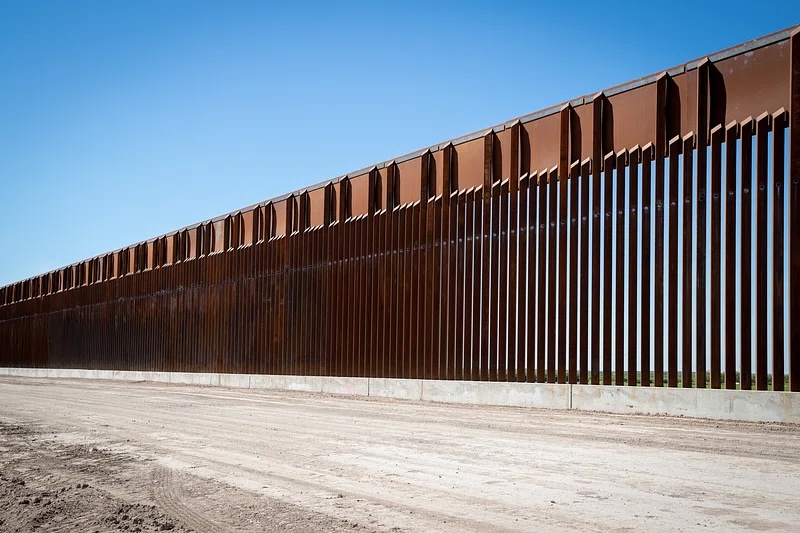Have a story idea
Have a story idea? Send it to us here.

Source : Ben Caudle, Creative Commons
November 14, 2024
Author : Alex Bustillos
As former President Donald Trump prepares for his return to office in 2025, the construction industry is watching closely to understand how his policies could affect the sector. His previous administration implemented significant shifts, particularly in trade, taxes, and regulatory frameworks.
The new term is expected to bring back some of these approaches with added intensity, impacting construction materials, labor, and procurement policies.
First, in regard to trade and tariffs, Trump’s “America First” economic stance, which led to tariffs on key construction materials like steel and aluminum, is anticipated to make a comeback. Trump has already proposed tariffs as high as 60% on Chinese goods and may seek to rescind China’s “most-favored-nation” status.
Given China’s economic situation, an intensifying trade war could have ripple effects on the cost and availability of construction materials, potentially slowing projects or escalating costs domestically.
The Tax Cuts and Jobs Act (TCJA) of 2018, a hallmark of Trump’s first term, introduced a flat corporate tax rate of 21% and shifted to a territorial tax system, benefitting companies with foreign operations.
While parts of the law affecting individuals will expire in 2025, the corporate tax cuts are set to remain, potentially benefiting large construction firms. Small businesses in construction, however, are lobbying for “tax certainty and fairness” to maintain competitive opportunities under any revised tax codes.
Trump’s initial presidency was marked by deregulation, symbolized by Executive Order 13771, which required the elimination of two regulations for every new one created. Biden rescinded this order, but Trump’s return could see similar policies reinstated.
Key industry regulations, like the Davis-Bacon Act (regulating wages on public works projects), are likely to stay due to legal safeguards, though Project 2025- a conservative policy plan tied to Trump- calls for a substantial overhaul of such laws, likely requiring Congressional approval.
One of the most contentious policies expected in Trump’s administration is his proposed mass deportation of undocumented immigrants, which could disrupt labor markets across industries, including construction. Trump’s use of the 1798 Alien Enemies Act to expedite deportations could create labor shortages, particularly in sectors heavily reliant on immigrant labor.
The policy’s feasibility remains uncertain due to budget constraints, legal challenges, and required resources, but even incremental increases in deportations could lead to tightened labor availability and wage increases within the construction sector.
Trump’s platform also includes prohibiting companies that outsource jobs from contracting with the federal government. This move could pressure federal contractors to keep operations domestic, potentially affecting project costs and timelines.
Additionally, policies promoting cybersecurity standards, like the Cybersecurity Maturity Model Certification (CMMC), are expected to persist, adding layers of security obligations for contractors engaged in government construction projects.
In regard to the environment, Trump’s stance on reducing regulatory burdens is likely to involve repealing Biden-era green procurement standards, including regulations tied to greenhouse gas emissions and climate-related financial disclosures.
Such reversals may lessen compliance costs for construction firms but could also reduce incentives for sustainable practices, shifting focus toward traditional energy sources and construction methods.
One of the more controversial topic are the Project 2025’s proposed initiatives, despite not being fully endorsed by Trump, these include aggressive policy changes that may affect federal construction projects. The blueprint emphasizes defense spending, promotes U.S. citizenship quotas in contracting, and proposes increased investment in defense infrastructure and emerging technologies.
The incoming Trump administration is set to introduce policies that could reshape construction by altering costs, supply chains, and labor availability. Industry players should brace for potential cost increases due to tariffs, labor shortages, and shifts in federal procurement policies that may prioritize defense spending and domestic production.
Whether these policies will benefit or challenge construction firms will depend on their structure, labor dependencies, and adaptability to regulatory changes.
Category : Federal Government Green Economy Market Watch Procurement Public Works Taxes and the IRS Treasury Department
